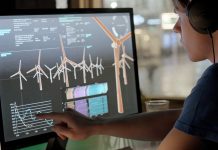Minister for Nuclear and Networks, Andrew Bowie, seals significant collaboration with the US to expedite worldwide progress in fusion energy
On Wednesday, November 8, the UK and US announced a significant partnership to advance fusion technology. The agreement, reached in Washington DC between the UK’s Minister for Nuclear and Networks, Andrew Bowie, and the US Deputy Secretary Turk at the Department of Energy, marks a crucial milestone in the energy collaboration between the two nations and underscores the importance of global cooperation in fostering innovation in this burgeoning field.
Fusion technology involves the fusion of two forms of hydrogen subjected to extreme temperatures, resulting in their combination and the release of energy. This energy can then be harnessed to generate electricity, offering the potential for a nearly limitless supply of clean power in the long run.
A shared fusion vision
The development of fusion technology is set to revolutionise global efforts to achieve net-zero emissions and enhance energy independence. As governments work towards building a more diverse and resilient energy mix, ultimately leading to lower energy costs in the long term, adopting this new technology will necessitate a skilled workforce. This will support the creation of well-paid jobs, contributing to economic growth.
Fusion energy, being many million times more efficient than traditional methods like burning coal, oil, or gas, has the potential to provide an almost unlimited source of clean electricity. This transformative capability significantly impacts global initiatives to achieve net-zero emissions and sustain energy independence.
Collaborative leadership
The collaboration with the US represents the UK’s inaugural formal international fusion partnership since initiating the £650 million Fusion Futures Programme. This program aims to keep the UK at the forefront of innovation in fusion technology, offering training opportunities and dedicated funding for companies in this field. The commitment to fusion energy is underscored by the allocation of £700 million to UK fusion energy programs from 2022 to 2025.
Collaborations between American and British institutions in fusion research have a long history, extending from the MAST-U tokamak in Oxfordshire to the DIII-D tokamak in California. The recently established partnership takes these efforts to a new level, building upon the UK’s Fusion Strategy.
The collaboration aims to:
- Unite scientists and engineers from the UK and the US to address the technical hurdles in achieving commercially viable fusion energy.
- Facilitate shared access to facilities, fostering collaboration and opening avenues for new research and development opportunities.
- Standardise international regulatory frameworks and codes of practice, ensuring a cohesive approach to fusion technology.
- Develop resilient supply chains for fusion materials, providing long-term support for the growing industry.
- Promote skills development to cultivate a robust talent pool over the next decade, ensuring the availability of skilled professionals in the field.
Nuclear and Networks Minister Andrew Bowie said: “International collaboration is key for advancing fusion and achieving our ambition of getting a commercial fusion reactor grid-ready by 2040.
“The UK and the US are world leaders in this technology, and pooling our resources will unlock new private sector investment.”
The inaugural meeting of a coordinating committee is scheduled for early 2024. Co-led by the Department for Energy Security and Net Zero in the UK and the US Department of Energy, this committee will comprise national laboratories, academia, and industry representatives. Its purpose is to propel a shared vision for advancing fusion technology collectively.
Atlantic declaration connection
This recent collaboration underscores the robust and distinctive alliance between the two nations in addressing globally significant matters. It follows a joint announcement earlier in the year, known as the Atlantic Declaration, which delineates the framework for a modern US-UK Economic Partnership in the twenty-first century.











